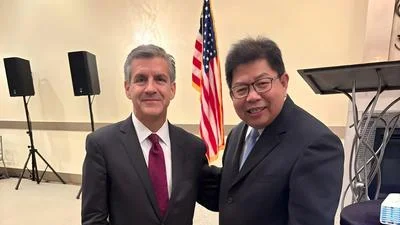Commonly called fulfillment centers, the Amazon facilities handle and ship consumer goods. | File photo
Commonly called fulfillment centers, the Amazon facilities handle and ship consumer goods. | File photo
While online mega-retailer Amazon.com’s recently disclosed plan to open two facilities in Aurora appears to signal better business for Illinois -- with 1,000 new jobs expected -- some analysts said the giant retailer actually will be receiving more than it gives.
Amazon will launch two sorting and shipping plants along Aurora’s Route 59, but only after the $250 billion business received guaranteed incentives and abatements that cost state and local taxpayer dollars, Crain’s Chicago Business recently said.
Commonly called fulfillment centers, the facilities handle and ship consumer goods. Together they will create 1,000 positions. The bulk of new employment will be allocated to the million-square-foot fulfillment center for smaller consumer goods, while the remainder will go to the 400,000-square-foot site devoted to larger items.
The transaction was negotiated by the statewide economic development corporation Intersect Illinois and the Illinois Department of Commerce and Economic Opportunity (DCEO).
“Today’s announcement further strengthens Illinois’ position as one of the nation’s top states for logistics and distribution,” DCEO Director Sean McCarthy said in a statement. “This has been a team effort, with DCEO and Intersect Illinois working together to make possible Amazon’s continued growth in Illinois. We are excited to see Amazon expand and create thousands of good-paying jobs.”
Not mentioned much in the fanfare is that Amazon’s reward for selecting Illinois as an operational hub comes in the form of a tax credit under a lesser-known program called Economic Development for a Growing Economy (EDGE). Previously, Amazon garnered a $1,000 bonus for every job created, Crain’s said. Similarly, when Amazon opened a Joliet facility and hired 2,000 Illinois workers, it cost the state’s taxpayers $2 million.
Coincidentally, the current EDGE tax-credit program expired on Jan. 1 because of Illinois’ ongoing budget impasse. Its relevance is even clearer when comparing that date to Amazon’s schedule; the brand-new contract became effective on Dec. 31.
“Amazon’s care and commitment weren’t free,” the Illinois Policy Institute said after a closer look. Additionally, the city of Aurora’s property-tax abatement for Amazon is worth $400,000. The Chicago Tribune reported that early publicity failed to divulge the company’s name, using instead only the code names “Project Bubba” and “Project Bubba Jr.” to refer to the two fulfillment centers.
Moreover, speculation circulated that Aurora was supposed to have gained 1,400 jobs rather than the 1,000 spelled out in the deal. The Illinois Policy Institute dismissed the discrepancy as “just business as usual for Amazon and its partners in local and state government.”
It would be easy to accept the news at face value and celebrate the welcome injection of jobs into Illinois’ economy. Company officials made much fanfare of the plans, reminding residents that Amazon has built facilities statewide in Edwardsville, Joliet, Romeoville and Monee, adding more than 7,000 jobs to the Land of Lincoln.
“In just over two years, Illinois has proven itself to be an ideal location from which Amazon can continue offering customers our vast selection and super-fast shipping speeds,” Akash Chauhan, Amazon’s vice president of North American operations, said.
Yet, industry experts see a starker silhouette to the big picture. In a state that has suffered drastic manufacturing losses, the nation’s highest property taxes, an 18-month-long budget stalemate and expensive workers’ compensation issues, analysts have said real reform is what Illinois needs to resuscitate its economy. Dismissing the promise of new jobs as merely gift-wrapped bribes, the Illinois Policy Institute said elected leaders would do better to make Illinois more competitive with neighboring states.
“The harsh reality is that Amazon is getting bribed by state and local government in order to bring jobs to Illinoisans,” the Policy Institute said. “This corrupt system not only distracts from the real problems, but also forces other taxpayers to pick up Amazon’s share of the tax burden.”






 Alerts Sign-up
Alerts Sign-up